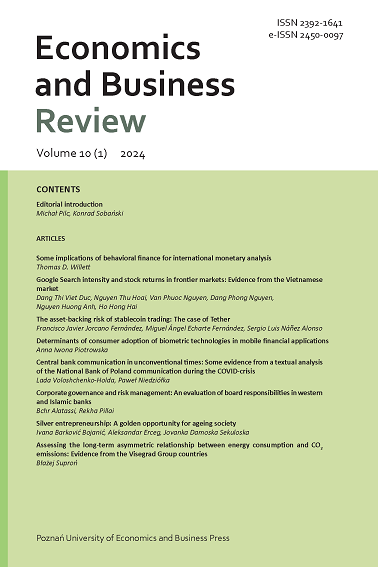Assessing the long-term asymmetric relationship between energy consumption and CO2 emissions: Evidence from the Visegrad Group countries
Assessing the long-term asymmetric relationship between energy consumption and CO2 emissions: Evidence from the Visegrad Group countries
Author(s): Błażej SuprońSubject(s): Energy and Environmental Studies, Environmental and Energy policy
Published by: Wydawnictwo Uniwersytetu Ekonomicznego w Poznaniu
Keywords: asymmetric panel data; Visegrad Group; energy transition; asymmetric causality; renewable energy; CO2 emissions;
Summary/Abstract: This study investigates the impact of renewable (REW) andnon-renewable (NREW) energy usage, along with econom-ic growth (GDP), on carbon dioxide (CO2) emissions in theVisegrad countries, which rely heavily on traditional energysources. Using data from 1991 to 2021, the analysis employsa panel asymmetric regression with Driscoll-Kraay and FGLSstandard errors. The latent cointegration test reveals long-term relationships with asymmetry among the variables.Real GDP fluctuations exhibit a negative impact on CO2emissions for both positive and negative shocks. A reduc-tion in conventional energy source consumption leads toa greater CO2 emission reduction, confirming asymmetry.Conversely, an increase in consumption positively impactsCO2 reduction. However, non-conventional energy sourcesshow no asymmetries. The OLS-based model proposed byDriscoll-Kraay showed reduced standard errors, but lowersignificance in the estimated parameters compared to theFGLS model. The findings recommend a sustainable energytransition for Visegrad countries by eliminating traditionalsources and promoting renewable resources.
Journal: Economics and Business Review
- Issue Year: 10/2024
- Issue No: 1
- Page Range: 179-198
- Page Count: 20
- Language: English

